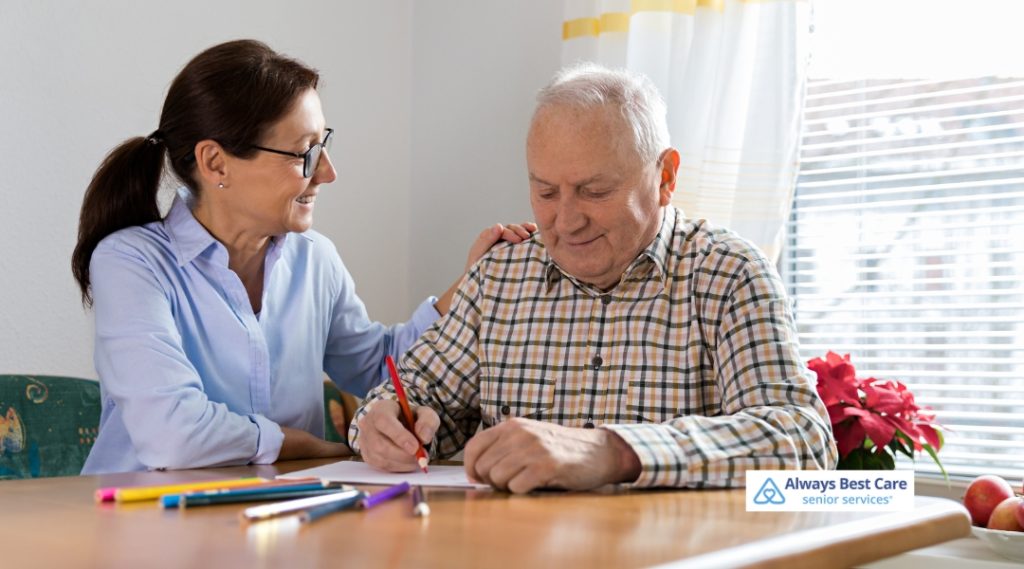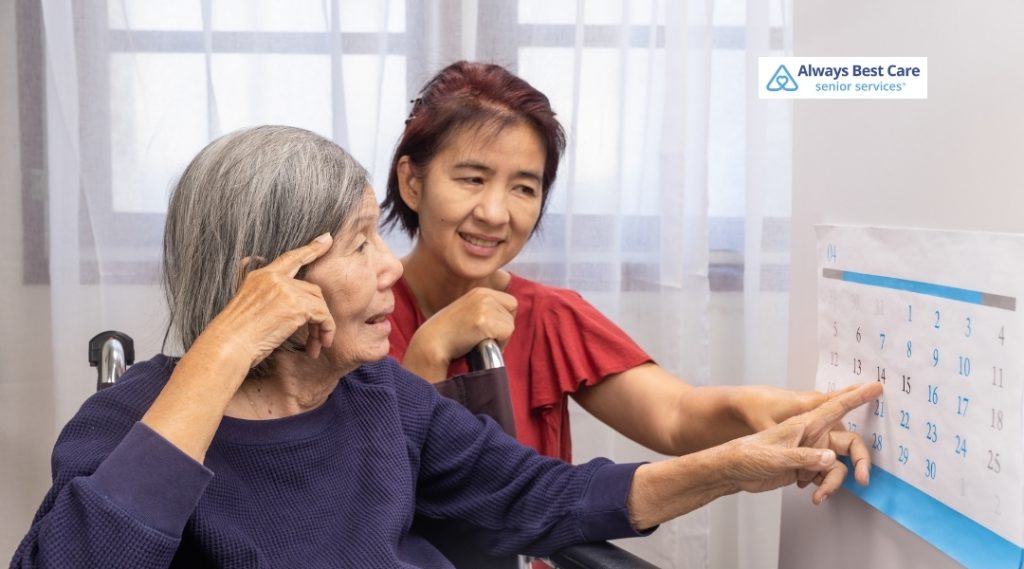When Memory Fades: Supporting Wandering Loved Ones in Manchester, CT

Ever had that heart-stopping moment when you realize someone you love isn’t where they’re supposed to be? For many families caring for someone with dementia, wandering is a daily worry; a sudden disappearance can happen in the blink of an eye. At Always Best Care of Manchester, we know just how overwhelming it feels to balance compassion and safety.
Wandering isn’t just about getting lost. It’s a complex challenge brought on by confusion, restlessness, or even a simple desire to head somewhere familiar. With our hands-on experience supporting local families, we’ve learned what makes this behavior tick and how to keep those we cherish safe at home.
What you will learn:
- The reasons behind wandering in people with dementia and how to recognize early warning signs.
- Practical strategies and home safety tips to help prevent wandering and keep loved ones secure in Manchester, CT.
- The importance of emotional support, community involvement, and when to consider specialized memory care services.
Table of Contents
Why Do People with Dementia Wander?
Wandering doesn’t happen because someone wants to cause trouble. In fact, most folks living with dementia are simply following old routines or searching for comfort from their past:
- Searching for something or someone familiar: Maybe it’s an old friend or that cozy kitchen chair.
- Sticking to lifelong habits: Heading out as if going to work—even if retirement happened years ago.
- Feeling overwhelmed by noise or chaos.
- Trying to cope with boredom.
- Losing track of time and place.

Spotting Red Flags: Warning Signs Your Loved One May Wander
Nobody likes surprises when safety is involved! Here are some tell-tale signs your family member might be at risk:
- Repeatedly trying doors or windows.
- Frequently asking about “going home,” even while sitting in their own living room.
- Pacing near exits.
- Seeming anxious around crowds or unfamiliar places.
- Trouble recognizing where they are, even inside their house.
Keeping Seniors Safe from Wandering in Manchester
So what can you do besides losing sleep? The good news: There are plenty of ways families like yours have made homes safer without making them feel like locked fortresses.
Secure the Environment (Without Going Overboard)
Don’t panic! You don’t need fortress walls:
- Install door alarms and motion sensors.
- Try locks placed higher up; out of sight often means out of mind.
- Use pressure mats by doors as gentle alerts.
GPS trackers tucked into shoes or pockets provide peace of mind if someone slips away unnoticed.

Routines Rule!
A well-planned day gives structure and lessens restless urges:
- Regular meal times.
- Daily walks (fresh air helps!).
- Simple chores together.
Keeping busy beats boredom every time!
Calm & Familiar Surroundings
Noisy TVs blaring? Too many visitors? Sometimes, simple changes create calm:
- Reduce loud background noise.
- Avoid moving furniture around (it causes confusion).
- Leave nightlights glowing softly through hallways.
Emotional Connection Matters
Loneliness leads people down tricky paths, even literally! Stay engaged through conversation and shared activities whenever possible:
- Baking cookies together.
- Looking through photo albums.
- Gardening side-by-side.
Sometimes, companionship is truly the most effective preventive measure available.

Label Everything!
Sticky notes aren’t just reminders; they’re lifelines:
- Clear labels on rooms (“Bathroom” or “Kitchen”).
- Colorful arrows pointing toward bedroom doors.
- Photos taped next to names help trigger recognition.
Every little cue reduces disorientation inside your home sweet home.
Get Neighbors On Board
Don’t go it alone! Trusted neighbors can keep watchful eyes open and help spread the word quickly if something seems off:
- Share recent photos & contact info.
Swap stories so everyone knows what normal looks like.
In emergencies, speed matters; being proactive builds community support fast!
When is Memory Care Needed?
Home may always hold our hearts, but sometimes extra support becomes vital. If managing daily safety grows overwhelming despite best efforts, it could be time to consider memory care services.
Memory care offers secure services tailored specifically for folks facing cognitive challenges:
| Feature | What It Means For Your Loved One |
| 24/7 supervision | Someone always nearby |
| Locked but welcoming entries/exits | No accidental strolls outside |
| Therapeutic programs | Stimulates brain & lifts mood |
| Personalized plans | Tailored care—not one-size-fits-all |
| Social activities | Friendly faces & new friends |
FAQ About Wandering & Dementia Safety
Q: Why does my parent keep wanting “to go home” even though they’re already there?
A: Disorientation is common; sometimes, memories mix up locations from long ago with today’s reality.
Q: Are GPS trackers really helpful or overkill?
A: Used wisely (and comfortably), GPS devices add reassurance without invading privacy too much. They’re backup plans rather than primary solutions!
Q: Can structured activities really prevent wandering episodes?
A: Absolutely! A busy mind has less chance or reason to wander off unexpectedly.
Q: Isn’t locking doors dangerous during emergencies?
A: Safety comes first—but use locks that you, not strangers nor confused loved ones alone, can easily open during fire drills, etc.
Partnering with You Every Step of the Way
Need guidance today about keeping your loved one safe?
Just give us a call. We’re right here beside you across every mile walked, even those unexpected detours life brings along the way.
Contact Always Best Care of Manchester at (860) 533-9343 to learn more and schedule your free consultation.





